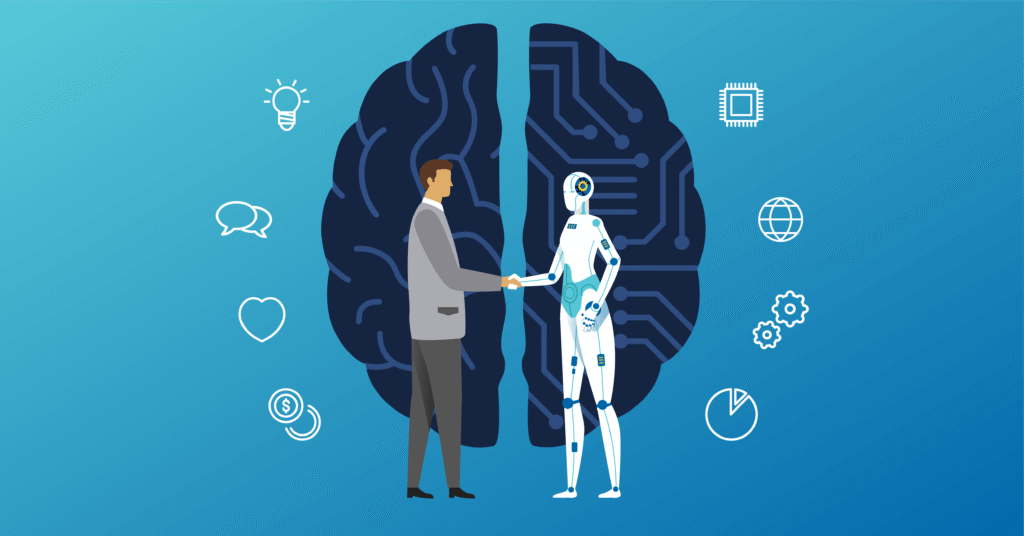Artificial Intelligence (AI) is no longer science fiction — it’s part of our daily lives. From voice assistants like Siri and Alexa to powerful tools that drive healthcare, finance, and even hiring decisions, AI is everywhere. But here’s the big question: Can we trust it? 🧐
That’s where AI ethics steps in. As AI continues to evolve, so do the risks. In fact, responsible AI isn’t just a buzzword anymore — it’s a necessity.
Let’s break down why responsible AI matters more than ever and what it means for our future 🔍
🤔 What Is AI Ethics, Anyway?
AI ethics is all about making sure AI systems do the right thing — for everyone. That includes:
- Being fair and unbiased
- Protecting privacy
- Avoiding harm
- Staying transparent
- Respecting human rights
Sounds pretty important, right? Well, it is. The way AI is trained and deployed can impact people’s lives in major ways — from job opportunities to justice system decisions.
👉 Want to explore more AI topics? Check out our guide to What’s Next for AI Trends 2025 You Need to Know Now Artificial Intelligence Trends 2025 on alltechfinder.com.
🚨 Why AI Ethics Matters Right Now
Here’s the thing: AI isn’t perfect. It learns from data — and if that data has bias, the AI will too.
Let’s say an AI is used to filter job applicants. If the training data mostly shows men being hired in tech roles, the AI might unintentionally filter out women. That’s not just unfair — it’s dangerous.
Here are a few real-world reasons why AI ethics is a hot topic in 2025:
1. 🏥 AI in Healthcare
AI helps doctors detect diseases, but what if it misses patterns in certain ethnic groups due to biased training data?
2. 💼 AI in Hiring
More companies use AI tools to screen resumes. But biased systems can hurt candidates from underrepresented backgrounds.
3. 👮 AI in Law Enforcement
Facial recognition tech has been shown to misidentify people of color more frequently — leading to wrongful arrests.
🧠 What Does “Responsible AI” Really Mean?
Responsible AI isn’t just about preventing bad outcomes — it’s about building trust. That means:
- 🔐 Privacy-first design: Respecting user data
- ⚖️ Fairness: Avoiding discrimination
- 💬 Transparency: Explaining how decisions are made
- 🧪 Accountability: Holding developers and companies responsible
So, instead of “move fast and break things,” responsible AI says: “Move smart, and do no harm.”
🌍 Global Push for AI Responsibility
Governments and organizations worldwide are waking up to the need for strong AI policies.
The EU’s AI Act 🇪🇺
Europe is setting strict rules to ensure AI is safe, fair, and explainable.
U.S. Blueprint for an AI Bill of Rights 🇺🇸
The U.S. is developing a framework to protect people from abusive AI systems.
Private Sector Commitments 💼
Tech giants like Google, Microsoft, and IBM are adopting ethical AI guidelines and publishing transparency reports.
For a deeper look at how companies are responding, check our article on What’s Next for AI Trends 2025 You Need to Know Now Artificial Intelligence Trends 2025 📚
🛠️ What Can We Do to Support Ethical AI?
You don’t have to be a developer or data scientist to care about responsible AI. Here’s what everyone can do:
- ✅ Ask questions: If a tool is AI-powered, ask how it works and if it’s fair.
- 🗣️ Support transparency: Choose companies that explain how their AI makes decisions.
- 📢 Push for policy: Advocate for laws that keep AI accountable and people safe.
- 💡 Stay informed: Follow trusted sources and tech blogs like alltechfinder.com for updates on ethical AI practices.
🧩 The Challenge: Balancing Innovation with Responsibility
AI has the power to change the world — for better or worse. The key is finding that balance between innovation and ethics. Yes, we want smarter machines, but not at the cost of fairness, freedom, or safety.
It’s not about slowing down progress. It’s about making sure progress works for everyone 💪
📝 Final Thoughts: The Future of AI Depends on Us
Responsible AI isn’t optional — it’s urgent. As users, creators, and citizens, we all have a role to play.
We must demand fairness, accountability, and humanity from the systems shaping our future. Because if AI is going to help us — not harm us — it needs to be built on the right values from the start.
🌐 Explore more about AI ethics, tech tools, and digital privacy at alltechfinder.com.
💬 What Do You Think?
Do you trust AI systems in your daily life? Are companies doing enough to build ethical AI?
Drop your thoughts in the comments and let’s keep the conversation going! 🗨️
